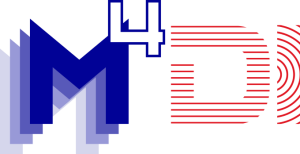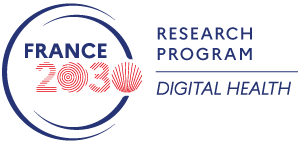Methods and models for multimodal and multi-scale data integration
Coordinator(s) : Anaïs Baudot
Coordinating institution : Aix-Marseille University
Multiscale multimodal multi-omics data, data integration

Thanks to the large amount of preclinical and clinical datasets produced nowadays, including omics, expert knowledge, or health databases, we have an unprecedented opportunity to advance health care. Importantly, no single dataset can capture the full complexity of human pathologies. Indeed, different data modalities offer multi-scale and complementary information. The joint analysis of heterogeneous datasets is expected to reduce the experimental and biological noise, reveal weak signals, and provide a more complete picture of human pathologies.
However, biomedical datasets are scarce, sparse, and highly heterogeneous. They further exhibit big data-related issues: the number of biomedical variables largely dominates the number of patients or samples. The burden is even stronger when the medical purposes involve few patients, i.e., for rare diseases or stratified medicine. Overall, the proper integration of heterogeneous datasets remains a major scientific challenge. New models and methods are required for improved health care and management.
The main objective of the Methods and Models for Multimodal and Multiscale data integration (M4DI) project is to develop innovative methodological frameworks for the integration of biomedical datasets. We will unroll 8 Individual Research Projects (IRP) gathering interdisciplinary teams around 8 PhD students. The students will conduct their research in a host lab with a long-term research stay in a secondment lab. Each IRP will develop a particular aspect of multimodal data integration, working on different types of data, different methods or algorithms, and different biomedical research questions. In this context, the IRPs (Individual Research Projects) are further organized in task forces, which cover major challenges in multimodal data integration, namely the integration of multi-omics data, the use of prior knowledge and the exploration of health databases. These three task forces will be completed by transversal task forces dedicated to biases and interpretation and benchmarking of the methods. All IRPs will work on concrete medical use-cases for which data are already accessible to the teams. The IRPs will deliver scientific publications but also software/packages and/or guidelines/protocols. An engineer will also be hired to help FAIRify the outputs of the project and diffuse them to the community.
Overall, our new methodological frameworks will be transformational for the development of the next generation of approaches capable of advancing health care and helping to predict disease onset, proper diagnosis, and prognosis, clinical decision support, or for the discovery of new therapeutic paths.
| Laboratory or department, team | Supervisors |
| MMG
U 1251 |
Inserm, Aix-Marseille University |
| LIRMM et IGMM
UMR 5506 |
CNRS, Inria, Montpellier University, Paul Valery Montpellier 3 University, Perpignan University |
| NeuroDiderot
U 1141 |
Inserm, Paris Cité University |
| IMT
UMR 5219 |
CNRS, Paul Sabatier Toulouse 3 University, Jean Jaurès Toulouse 2 University, Toulouse Capitole EPE University, INSA, INU Champollion, Ecole d’Economie de Toulouse-TSE |
| IRMAR
UMR 6625 |
INSA, CNRS, Rennes 2 University, Rennes University
Institut Agro Rennes-Angers & Inria partners |
| IRISA – UMR 6074 Team DyLiSS | INSA, CNRS, Inria, Bretagne Sud University, Rennes University, ENS, Mines Telecom, IMT Atlantique
Inserm, Institut Agro et Centrale Supélec partners |
| LBBE – UMR 5558 | CNRS, Claude Bernard Lyon 1 University, VetAgro Sup |
| LORIA – UMR 7503 | CNRS, Inria, Lorraine University |
| CRC – U 1138 Team HEKA, Insitut Imagine | Inserm, Inria, Sorbonne University, Paris Cité University |
| LIS – UMR 7020 | CNRS, Aix-Marseille University, Toulon University, Ecole Centrale Marseille |
| IGDR – UMR 6290 | CNRS, Rennes University, Inserm |
| LIRIS – UMR 5205 | CNRS, INSA Lyon, Claude Bernard Lyon 1 University, Lumière Lyon 2 University, Ecole centrale de Lyon |
| TIMC – UMR 5525 | CNRS, Grenoble Alpes University, Vetagro Sup, Grenoble INP partner |


